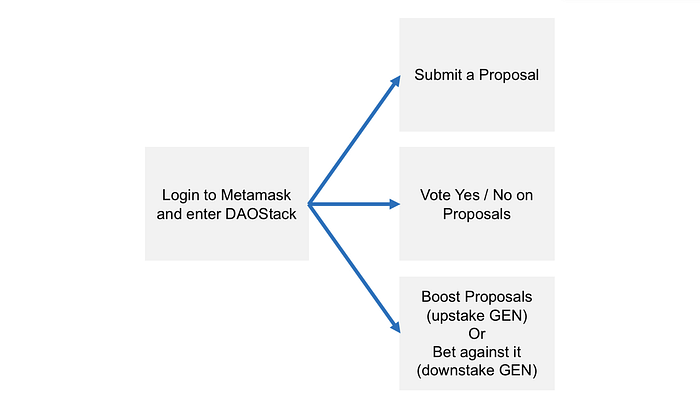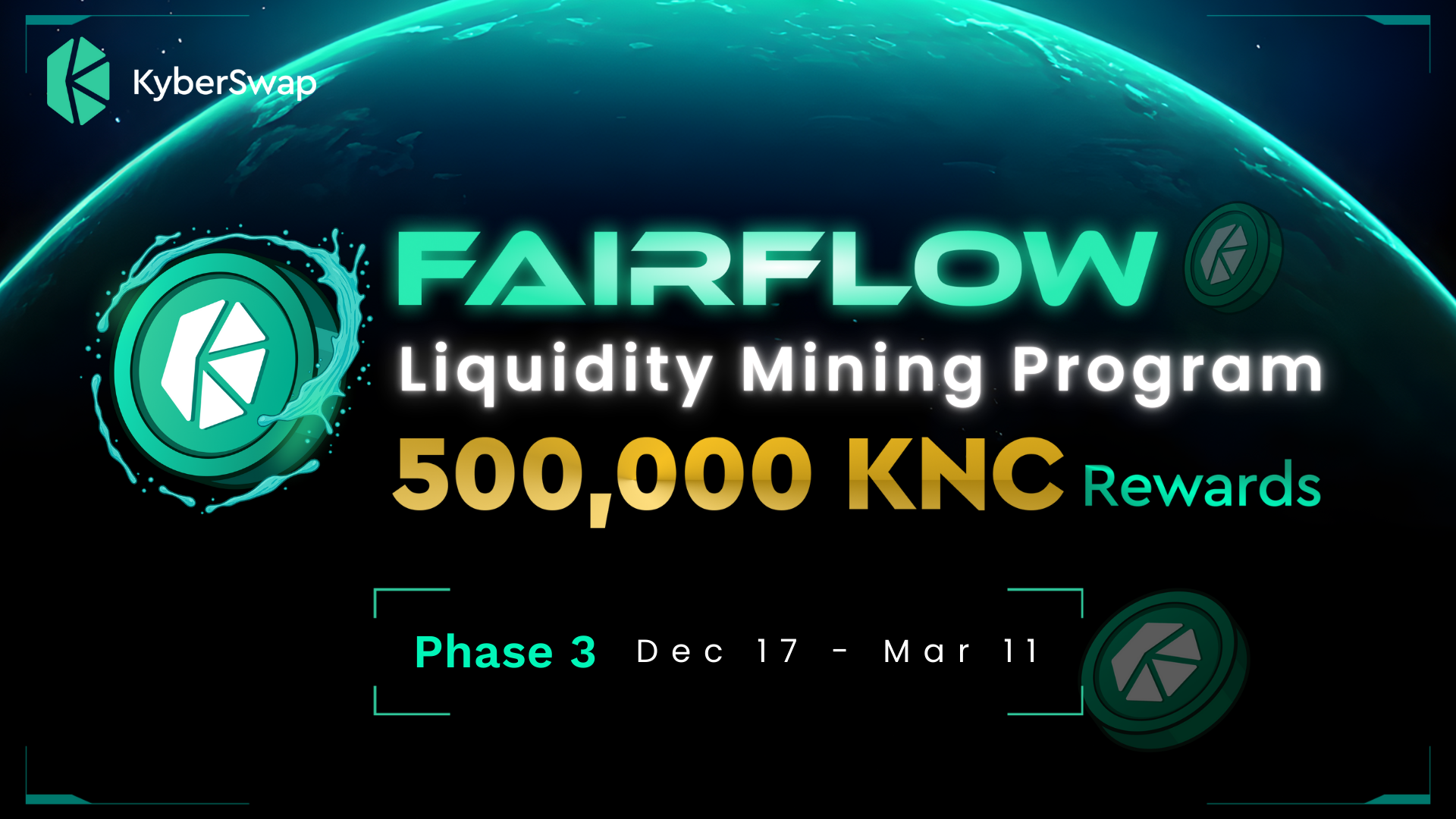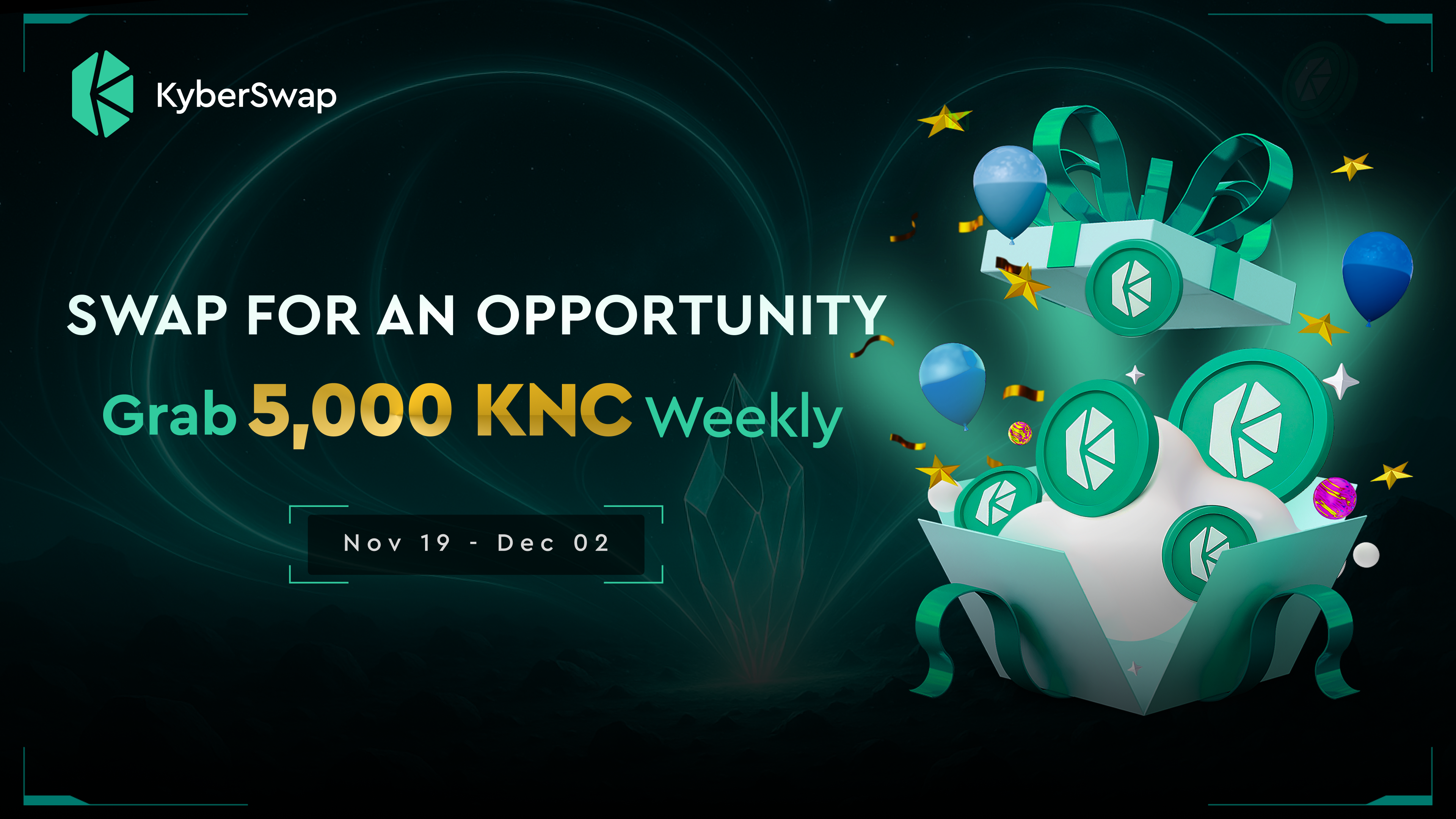Overview
Thank you for your participation in Experiment #1 on Aragon, and all the feedback provided in our KyberDAO discussion group (which has grown to over 160 members — come join us)! For Experiment #2, we will be running a test DAO on DAOstack’s Alchemy platform.
This is a continuation of our plans to find a suitable governance model for Kyber Network. As mentioned before, these experiments will help Kyber gauge community interest, learn from one another, and identify the key challenges when it comes to decentralized governance and making collective decisions as a community.
The results from Experiment #1 indicated that the majority of our community members wanted to have a community grant in KNC to fund Kyber development. For this experiment, we are excited to announce that there will be a grant of 17,000 KNC (about $4500), where anyone from the community can submit a proposal with a fund request for a portion or the full amount of the grant.
Voting Theme
Propose any idea or action plan that will help us spread awareness and educate more people about Kyber Network or KyberSwap. You can either submit an idea for other people to execute, or an action plan where you are responsible for execution. Of course, it’d be ideal if you could execute your own idea.
Examples:
Create an infographic, hold a Kyber meetup in your country, become an ambassador for Kyber, build a bot to disseminate Kyber news, write an article, poem or song about KyberSwap, draw Kyber graffiti, create a KyberSwap sticker pack etc.
Community Grant
Total of 17,000 KNC (about $4500) provided in the KyberDAO. Each proposal can request for any portion of this budget, up to the full amount.
Request for funds is meant to reward good ideas or for funding the proposals that get passed. Once the proposal is passed, requested funds can be redeemed and sent to the participating Ethereum address.
Enter KyberDAO:
https://alchemy.daostack.io/dao/0x6bee9b81e434f7afce72a43a4016719315069539
Mechanics
- Poll will be on the Ethereum Mainnet, using the DAOstack Alchemy platform.
- Voters have to use Metamask. Please make sure your Ethereum address has some ETH for gas.
- Proposals that get passed will win the amount requested. The amount will be sent to your Ethereum address after you redeem it in on DAOstack Alchemy.
- Anyone holding the minimum amount of 1000 KNC will receive Reputation points, allowing you to vote on proposals. But holding KNC only accounts for a % of the total Reputation points and voting power (more details later). You can easily obtain KNC on KyberSwap.
- Pre-experiment screenshot date: the Ethereum address screenshot date will be on Monday, 17th June 7pm GMT+8. Please make sure you deposit KNC into your desired voting addresses by that date and time.
- Duration: Experiment #2 starts on Friday, 21st June 9pm GMT+8, a few days after the screenshot date. Each new regular proposal has a time period of 7 days, after which it will expire. Experiment #2 will officially end after 60 days, or when the DAO funds are depleted.
- Enter KyberDAO: https://alchemy.daostack.io/dao/0x6bee9b81e434f7afce72a43a4016719315069539
Voting Power
DAOstack has a mechanism called ‘Reputation Score’, which can be earned based on specific criteria that the DAO creator (in this case the Kyber team) can set prior to its creation. Each DAO member will have voting power and influence aligned with his Reputation Score in the DAO.
After extensive discussion with the community and conducting deeper research, we have selected a few criteria that we have identified as relevant for the reputation system in Experiment #2. These criteria help reward a variety of stakeholders who are all important to Kyber’s ecosystem in their own special way.
Your Reputation Score and influence will be determined based on these criteria, and tied to your Ethereum address. If your submitted proposal gets passed, you also gain more reputation.
How to earn Reputation (Voting power)
There will be a total cap of 300 Reputation points (that make up your score) per Ethereum address. This will be calculated using your Ethereum address history on a screenshot date (Monday, 17th June 7pm GMT+8).
See below for the different criteria to earn Reputation points and voting power. Do note that you need to hold a minimum of 1000 KNC to participate in KyberDAO Experiment #2.
- KNC Holder: up to 150 points
- 1000–3000 KNC (10 pts)
- 3001–5000 KNC (30 pts)
- 5001–10,000 KNC (50 pts)
- 10,001–20,000 KNC (70 pts)
- 20,001–50,000 KNC (90 pts)
- 50,001–100,000 KNC (120 pts)
- >100,000 KNC (150 pts)
2. Traded on Kyber (in the last 3 months): up to 40 points
- > 120 ETH (40 points)
- > 80 ETH (30 points)
- > 50 ETH (20 points)
- > 20 ETH (10 points)
3. Reserve manager : 40 points
- Reserve manager’s Admin address or KNC fee address will be given reputation points for voting. As a Reserve, if you wish to change your voting address, please contact [email protected]
4. Integrated DApp/wallet/vendor/analytics platform or Network maintainer (Kyber team) : 40 points
- Wallet ID address for fee-sharing will be given reputation points for voting; it must have been previously submitted to Kyber. If you wish to change your voting address, please contact [email protected]
5. Participated in the previous poll: 30 points
- Any address that participated in the previous poll will receive 30 points
Example:
In his Ethereum wallet address, John Snowey is holding 21,000 KNC (90 pts). In this same address, he has traded on Kyber before, > 50 ETH in trading value, in the last 3 months (20 pts). He has also integrated KyberWidget into his crypto e-commerce site, selling mining rigs (40 points). Lastly, John participated in the recent KyberDAO Experiment #1 (30 points).
John’s address will receive a Reputation score and voting power of 180 points.
Submitting a proposal on DAOstack
In DAOstack, anyone can submit a new proposal to the platform, providing a description, a url to a pitch deck/website, and how much funds you’d like to receive. You can also vote for your own proposal.
[TAG] your proposals
To make proposals clearer for voters (and providing a higher chance for success), please add one of the 3 tags below in front of your proposal title.
- [IDEA] → user is just requesting some money for his good idea or suggestion, doesn’t need to execute it. Kyber team or any other team can execute it if we want to.
- [ACTION PLAN] → user is asking for money to execute the proposal himself/herself with proof of completion later etc.
- [BUILD] → user is asking for money to build a DApp or to integrate Kyber.

Regular Proposals
Proposals start as Regular Proposals. For Regular proposals to pass, you need absolute majority — For example, If there are a total of 1000 Reputation Scores given out, 501 is needed to vote YES on the proposal for it to pass. If 500 (out of a total of 1000) Reputation Scores voted, and all voted YES, the proposal will NOT get passed.
Boosting Proposals
On DAOstack, users can do more than just vote YES for proposals they really favour. DAOstack allows anyone to ‘Boost’ Proposals by upstaking using DAOstack’s GEN tokens. You can easily buy GEN on KyberSwap.com !
Boosted Proposals have a huge advantage over Regular (non-boosted) Proposals. They only need relative majority to pass –
For example, imagine there are a total of 1000 Reputation Scores allocated. If 10 (out of 1000) Reputation Scores voted in total, and 6 voted YES, the proposal gets passed! They also get featured more prominently at the top of the proposal list.
Boosting acts as a curation process to filter through a large number of proposals, since boosting costs resources (GEN tokens). Ideally, proposals that the DAO determined as suitable and valuable will get upstaked and boosted by some members (like the Kyber team), while proposals that are not preferred get downstaked.
There is also game theory involved, as predictors are rewarded for successfully forecasting the outcomes of proposals (pass/fail). If you had upstaked GEN and the proposal gets passed, you win the downstaked GEN tokens. If the proposal fails to pass (when it is already boosted), and you had downstaked GEN, you win the upstaked tokens.
The KyberDAO automatically downstakes 50 GEN for any new proposal submitted, helping to drive participation right from the start.
How to boost proposals?
Upstaking: Anyone can buy DAOstack GEN tokens and place a stake that a proposal will get passed (predicting that it’d get passed). This will help to ‘boost’ a proposal. For example, the Kyber team might like the proposal, so they upstake it and try to boost it to the top of the queue.

Downstaking: Buying DAOstack GEN tokens and placing a bet that a proposal will not get passed. For example, the Kyber team disagrees with the proposal, so they downstake it and prevent it from being promoted to Boosted Proposal status.
Once someone upstakes and boosts a Regular proposal, it goes into a Pending Queue for 72 hours. If it remains there for 72 hrs, with more upstaked than downstaked GEN, it gets automatically promoted to Boosted Proposal status.
The Boosted Proposal will have to wait for at least another 72 hours, before the DAO votes determine if it passes or fails.
Note: You can vote and upstake your own proposal. Also, it is not necessary for you to buy GEN to boost proposals if you don’t wish to do so.
Proposal Execution
If the proposal is submitted as an [ACTION PLAN] or [BUILD] Proposal, the person or team who submits the winning proposal is responsible for executing the plan, using the funds received.
If you’re requesting for a high amount of funds, please split your proposals into step-by-step milestones to stand a better chance of garnering positive votes.
However, you are able to just submit a good [IDEA] and get compensated for it. The Kyber team may or may not execute the proposal.
TLDR: What can you do on DAOstack Alchemy for Experiment #2?

- Have at least 1000 KNC in your desired voting address by Monday, 17th June 7pm GMT+8.
- Submit your own proposal — [IDEA] , [ACTION PLAN], or [BUILD]
- Vote YES / NO for existing proposals in the DAO. You have up to 60 days.
- Boost proposals by buying GEN tokens and upstaking them (placing a prediction that the proposals will pass). This is for proposals you like or think will get passed.
- Downstake proposals after buying GEN tokens and placing a prediction. This is for proposals that you don’t like, or think it won’t get passed.
FAQ
What happens to my GEN tokens when I upstake or downstake, and the proposals get passed / doesn’t get passed?
- If you upstake and the proposal passes, you receive a portion of the GEN that were downstaked, as well as your own upstaked GEN. If there are no downstaked votes, you get back only your own GEN.
- If a proposal has both upstakes and downstakes, and fails to reach boosted status, all upstakes and downstakes can be claimed.
- You’d have to manually redeem your stakes or rewards on the Alchemy platform.
- You may read about DAOstack GEN Predictor’s Network here.
How much GEN do I need to boost a proposal?
- Depends on the amount of GEN required to upstake and boost. This will be indicated based on a certain pre-determined formula. The exact amount can be seen on the DAOstack Alchemy platform.
- You can buy GEN on KyberSwap.
How do we prevent someone with a lot of GEN (e.g. Kyber team buying a lot) from controlling votes?
- Someone with a lot of GEN can only upstake (boost) or downstake proposals but doesn’t get additional voting power, so they can’t control votes.
- If someone upstakes proposals that do not pass the majority vote, means they end up creating an arbitrage opportunity for others to band together and take their stake.
What happens if there are not enough remaining funds in the KyberDAO, compared to what I requested?
- Rewards cannot be sent to your Ethereum address
- Team has to top up the DAO fund
KyberDAO Experiment #2 will last for 60 days, or until the funds in the DAO are depleted.
Enter KyberDAO:
https://alchemy.daostack.io/dao/0x6bee9b81e434f7afce72a43a4016719315069539
*Thank you DAOstack for providing us with important educational material. If you’re unclear about any points, or you have some feedback, please let us know on telegram: Shane @shaneHk or KyberDAO Discussion Group



